MercoPress. South Atlantic News Agency
Politics
-
Wednesday, August 4th 2010 - 06:51 UTC
Mexico to debate legalization of drugs; 28.000 deaths related to the ‘war’

Mexican president Felipe Calderon has invited the country to a serious debate on the legalization of drugs in light of the latest figures indicating that over 28,000 people had been killed in a four year period.
-
Wednesday, August 4th 2010 - 02:42 UTC
Lula da Silva’s double challenge as Mercosur chair

Consolidating Mercosur as an “undisputed irreversible” integrated block will be Brazilian president Lula da Silva challenge as the pro-tempore chair of the group in the last leg of his eight years in office.
-
Wednesday, August 4th 2010 - 01:08 UTC
Venezuela begs Paraguayan congress to vote on Mercosur incorporation
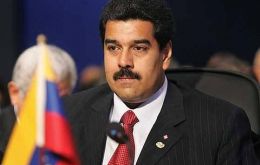
Venezuela’s Foreign Affairs minister Nicolas Maduro called on the Paraguayan parliament for a “sincere and fraternal” vote that opens the way for Venezuela’s incorporation to Mercosur as a full member, a request pending since 2006.
-
Wednesday, August 4th 2010 - 01:03 UTC
“Fantastic summit” effectively turns Mercosur into a customs union
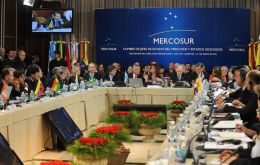
Mercosur concluded Tuesday in Argentina one of its most successful summits after having reached agreements on issues that consolidate integration and at the same avoiding being drawn into a frustrating debate on a renewed chapter of the ongoing Venezuela/Colombia conflict.
-
Tuesday, August 3rd 2010 - 15:20 UTC
UN Court ruling props “self determination”, contains “territorial integrity”

An International Court of Justice ruling, that Kosovo (in the Balkans) did not violate international law when it claimed secession from Serbia in February 2008, may have implications for territories caught in territorial sovereignty disputes such as Gibraltar, it has emerged.
-
Tuesday, August 3rd 2010 - 14:45 UTC
Proposal in Chile to legalize same sex marriage “to install the debate in society”
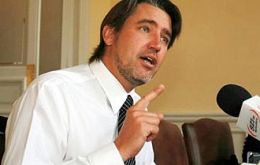
Socialist Sen. Fulvio Rossi announced Sunday that he will present a law to the Senate on Tuesday to legalize same sex marriage in Chile. The announcement was made at a press conference one day after Santiago Archbishop Francisco Javier Errázuriz publicly called the idea of marriage between two people of the same sex “an outrage,” referring to Argentina’s initiative.
-
Tuesday, August 3rd 2010 - 06:28 UTC
Mercosur signs trade accord with Egypt; Venezuela/Colombia conflict out of the agenda
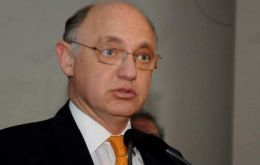
Argentine Foreign Minister Héctor Timerman set in motion the 39th Mercosur Summit during which Argentina informed of the results obtained under its pro-tempore presidency of the bloc in the first six months of the year.
-
Tuesday, August 3rd 2010 - 06:24 UTC
Mrs. Kirchner underlines Mercosur economies ‘very good’ performance
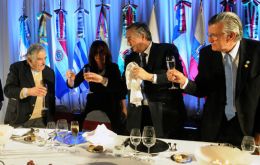
President Cristina Fernández de Kirchner said Monday evening that the Mercosur Summit “arrives at a very special time in the world economy, especially in all of South America, which has had a very satisfactory performance”.
-
Tuesday, August 3rd 2010 - 05:46 UTC
Mercosur expects the EU to match the latest offer for a trade agreement

Mercosur Foreign Affairs ministers meeting on Monday in Argentina said they trust the European Union will match the latest offer from the South American block to make possible a trade and cooperation agreement that has remained elusive for years.
-
Tuesday, August 3rd 2010 - 00:25 UTC
India and Argentina sign cooperation agreement in agriculture
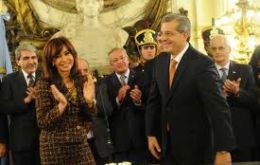
India and Argentina signed in New Delhi on Monday a joint agreement for the development of technical and professional cooperation in the agricultural sector and to foster trade of plants and animal products between the two countries.
